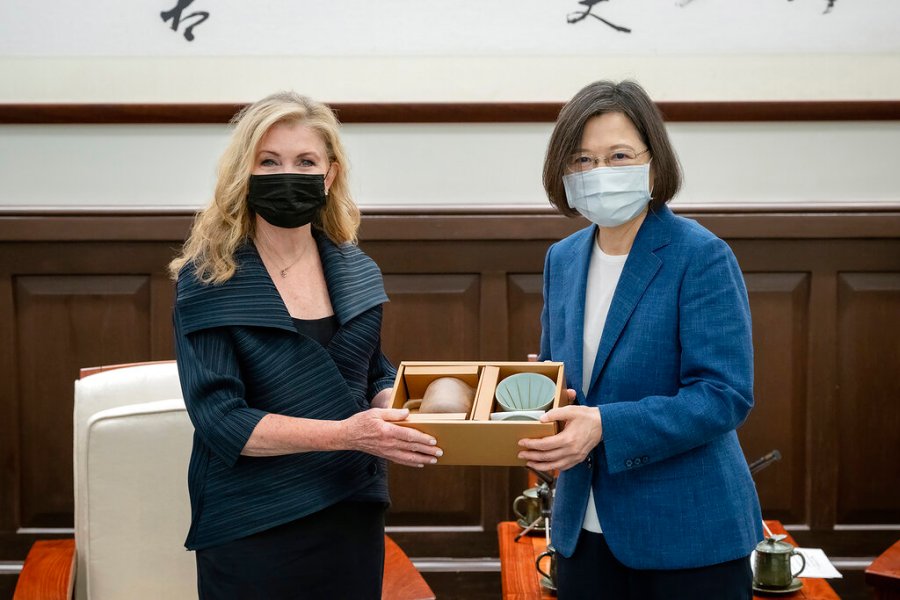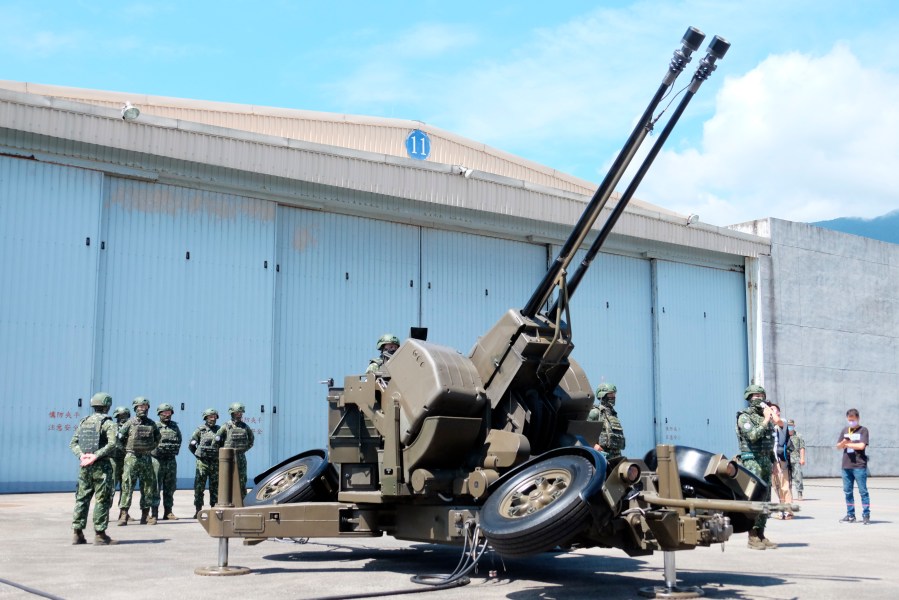(NewsNation) — Another American political delegation, led by Sen. Marsha Blackburn, R-Tenn., is visiting Taiwan this weekend, further increasing high tensions between the United States and China.
Taiwan’s leader on Friday said China and Russia are “disrupting and threatening the world order” with Beijing’s recent large-scale military exercises near the island and Moscow’s invasion of Ukraine, as Blackburn was meeting with leaders there.
China claims Taiwan as its own territory, to be brought under its control by force if necessary.
China’s Foreign Ministry said in a statement it deplores Blackburn’s visit and urges her to cease all forms of official communication with Taiwan, saying it sends the wrong signal to Taiwan independence forces.
Congressman John Garamendi, R-Calif., spoke with NewsNation about the tense relationship between China and the U.S. unfolding on a global scale. He did not want to go as far as to call it a “Cold War,” but said the relationship was certainly at a low point.
“It’s likely to remain tense for some time into the future,” Garamendi said. “While all of that is going on, the economic ties between China and the United States are very, very significant. China recognizes that the United States is their single biggest trading partner.”
China sees high-level foreign visits to Taiwan as interference in its affairs and a de facto recognition of Taiwanese sovereignty. China’s recent military drills were seen by some as a rehearsal of future military action against the island, which U.S. military leaders say could come within the next few years.

Along with staging the exercises, China cut off contacts with the United States on vital issues, including military matters and crucial climate cooperation, raising concerns over a more aggressive approach by Beijing. It also called in U.S. Ambassador to China Nicholas Burns to formally complain. He later said China was overreacting in order to manufacture a crisis.
Due to the separation of powers in the U.S. government, the executive branch has no authority to prevent legislators from making such foreign visits and Taiwan benefits from strong bipartisan support in Washington. China, where the Communist Party wields total control over the country’s politics, refuses to acknowledge that fundamental principle.
U.S. State Department spokesperson Vedant Patel said members of Congress and elected officials “have gone to Taiwan for decades and will continue to do so,” and that it was in line with U.S. policy to only maintain formal diplomatic ties with Beijing.
“We’re going to continue to take calm and resolute steps to uphold peace and stability in the region and to support Taiwan in line with our longstanding policy,” Patel said at a briefing Thursday.

Meanwhile, Taiwanese Foreign Minister Joseph Wu told reporters Friday that “China’s motivation is to destroy the Taiwan Straits’ status quo, and after this they want to cut down on Taiwan’s defensive space.”
Taiwan is seeking stepped-up defense cooperation and additional weaponry from the U.S., along with closer economic ties.
In their meeting, Tsai and Blackburn underscored the importance of economic links, especially in the semiconductor sector, where Taiwan is a world leader and the U.S. is seeking greater investment at home.
Blackburn arrived in Taipei late Thursday after visiting Fiji, the Solomon Islands and Papua New Guinea as part of a U.S. push to “expand our diplomatic footprint in the area,” her office said in a statement.
The Associated Press contributed to this report.





